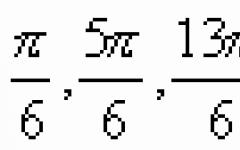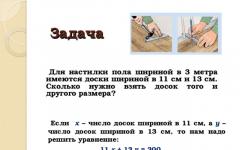Activities of the Psychological, Medical and Pedagogical Commission (PMPC).
1. Goals, objectives of PMPC, composition of specialists.
2. Principles of PMPC.
3. Functions of PMPC.
Today, the problem of early diagnosis and prevention of developmental disorders is especially acute, because The sooner parents and their children contact special services with their problem, the more effective the assistance provided to them will be.
Patronage is a type of assistance to a child, parents, and teachers in solving problems related to survival, rehabilitation treatment, special training and education, and the development of a person as an individual.
Medical - social - psychological - pedagogical patronage - measures of comprehensive rehabilitation assistance, focused on the family of a child with developmental disabilities, are carried out in the process of coordinated work of specialists (unity of diagnosis, search educational route, development of rehabilitation programs).
This patronage is carried out by psychological, pedagogical, medical and social institutions and government services. education and social protection and other non-governmental institutions: public institutions, associations, charitable foundations.
The basic basis of patronage is PMPC, diagnostic rehabilitation centers, social centers, speech therapy centers, early and home education services.
Medical - psychological - system pedagogical assistance is formed as part of the special education system, coordinates its activities with scientific and methodological institutions, with healthcare and social protection institutions.
Thus, PMPK provides great assistance in the diagnosis, treatment and education of children with developmental disabilities.
Psychological - medical - pedagogical commissions (consultations) are created at:
Regional level (dominant) and
At the municipal level (city, district PMPK) - consultations as a unit of an educational institution and medical and social assistance or as a diagnostic and consultation center.
Consultations on the basis of an educational institution.
Purpose of PMPC- determination based on the diagnosis of special educational needs and conditions ensuring the development, education, adaptation and integration into society of children and adolescents with developmental disabilities.
PMPC objectives:
1) Development and implementation of medical, psychological and pedagogical assistance to the population in order to prevent developmental disorders.
2) Timely examination of a child of early, preschool school age, identification of physical, intellectual, emotional development for the purpose of providing corrective assistance.
3) Help in preventing developmental disorders.
4) Identification of readiness for schooling older children preschool age, determination of forms of training, development of individual recommendations for treatment, training, education.
5) Providing advisory assistance to parents and methodological assistance to teachers.
If necessary, specialists review the diagnoses previously given to children (PMPC conclusion). The commission is receiving proposals for further organization of specialized assistance in the region.
Composition of specialists:
Manager;
Social worker;
Psychologist (with knowledge of clinical or special psychology);
Doctor - psychiatrist;
Defectologists (oligophrenopedagogist, speech therapist, at the regional level in PMPK: typhlopedagogist, teacher of the deaf);
Methodist;
Doctors (otolaryngologist, orthopedist, neurologist);
It is possible for educators to participate.
The selection of children in special institutions, the formation of groups in accordance with age, type of developmental disorder is also carried out by specialists from the primary medical education center at the district level and at the institution.
In doing so, they are guided by the following principles:
1) Separating children from different types disorders (compensatory type V (for children with speech impairments)).
2) Differentiated training according to the severity of the deviation (d/s for the blind and d/s for the visually impaired).
3) Age principle (each group includes children of a certain age from 2 to 7 years).
4) Holistic, integrated approach to the child (interrelation in the work of all specialists, examination of all aspects of mental activity and personality). In special The preschool educational institution employs a doctor who helps to more accurately determine the child’s diagnosis, prescribes and carries out treatment, and monitors compliance with the regime.
5) Comprehensive analysis of psychophysical and social development child.
6) Analysis of the dynamics of child development.
7) Use of a teaching experiment in the conditions of PMPK with a focus on the child’s ZPD, in the form of a game, etc.
8) Individual work with the child, in small groups, with parents, in the presence of several specialists.
Functions of PMPC (areas of activity):
1) Expert diagnostic.
Provides high - professional level diagnostics of the development of a child whose education and upbringing in a family or educational institution requires special assistance from a psychologist, medical specialist. workers, social worker.
Complied with:
Reliability of diagnosis;
Timeliness (early diagnosis, asking questions about suspected developmental disorders);
Complex, comprehensive diagnostics (taking into account medical, pedagogical, psychological, social aspects of diagnostics, which is identified by specialists of various profiles);
Dynamic diagnosis of developmental disorders (analysis of anamnestic and follow-up data, observation of a child at different age stages).
This is how a holistic approach to the child is implemented.
Drawing up a conclusion (see sample) and
Determining the special educational needs of children in accordance with age characteristics development, interests, abilities, “social situation of development”
Determination of conditions (type, type of educational institution, program), forms of education (frontal, individual; at home, mixed learning),
Combining education and treatment with resolving issues of social protection of the child.
2) Information (formation of a database about children with disabilities, about institutions of special education, health care, social protection).
3) Analytical:
Survey planning;
Determination of the examination procedure and conditions;
Discussion of the examination results by all specialists.
4) Organizational (coordination of the activities of city and district PMPCs, control of PMPCs at different levels among themselves, with other institutions, etc.
5) Methodical.
It is carried out at three levels of the PMPK system, where:
A single package of standardized diagnostic techniques for examination, but the set is individual for each (in accordance with the examination plan).
Uniform requirements for forms of documentation and statistical reporting based on survey results.
Uniform requirements for the examination procedure.
Mandatory advanced training in courses for specialists (at least once every 5 years).
6) Advisory:
Consultations for children and adolescents,
Consultations with parents, legal representatives of the child, teachers, medical and social workers.
7) Support function (monitoring the effectiveness of PMPK recommendations and the dynamics of the child’s development - through PMP-e councils of educational institutions and through parents).
8) Educational (education on issues in various forms: lectures, trainings, consultations, etc., distribution of printed materials for children, the general population, specialists, the media)
Contact PMPC:
Parents and employees of institutions with parental consent.
Teachers refer parents to a psychiatrist and provide a psychological and pedagogical profile of the child, which will help determine existing difficulties and developmental features of the child. If, through an educational institution, the positive role of an official referral and other documents for solving the child’s problem is justified to parents. Children are not sent to PMPK without the consent of parents or responsible persons. PMPK, in turn, guarantees the confidentiality of information about the child.
Children and adolescents whose developmental deviations impede the stay, adaptation, development and education of children and adolescents in institutions, in the family, in society are referred.
Before being examined by teachers and psychologists, a medical diagnosis is carried out:
Examination of the child
Collection of anamnestic information,
Assessment of the somatic, neurological and mental state of the child (general examination: condition of the analyzers, features of the face, limbs, etc., assessment nervous system, the presence of pathologies in the development of the articulatory apparatus).
Next, the condition is examined mental development child: intellectual, speech, emotional. The examination begins with the study of non-speech functions. It is important to determine which links in the structure of mental activity are not formed (or violated) in order to build the study of the child taking into account the zone of actual development and with a focus on the zone of proximal development (determining directions for correctional work).
The state of mental processes is assessed in accordance with the age-related characteristics of the child’s mental development. (research using various methods) Diagnostic observation of the child’s play, constructive activities, and behavior in various situations is carried out.
Methods:
Observation,
Experiment,
At the same time, speech understanding, speech and non-speech communication, the child’s speech activity are examined, then - speech development(features of sound pronunciation, etc.). During the examination, visualization is used. Methods and techniques for identifying deviations in the development of a child are selected in accordance with age and taking into account the expected defect in the child (for example, a hearing-impaired child is asked questions in a loud voice).
It is especially difficult to examine children who do not understand, who do not speak, children with behavioral disorders, or those with increased psychological exhaustion. It is difficult to differentiate conditions and causes that are similar in external manifestation; the prognosis may be different.
In any case, the examination both in the preschool educational institution and in the primary medical education complex must be joint, agreed upon with all specialists, and carried out taking into account age, personal characteristics, there is not only an identification of the child’s difficulties, but also an assessment of the child’s intact capabilities, which are relied upon when selecting the content and forms of education and upbringing. The examination must be individual (in terms of selection of tasks, exercises, speech and didactic material). The conclusion is made by all specialists
It happens that a child has problems in learning, communicating with peers, general development. In this case, parents may hear from teachers and psychologists that their child needs to undergo a psychological, medical, and psychological commission. PMPC Commission, what is this? The question may arise whether it is necessary to send the child to such a consultation at all. You should understand this in detail in order to understand what will happen.
PMPK is a commission during which it is determined whether the person under study has specific diagnoses and insurmountable problems in studying according to standard school curriculum. Often such diagnoses are:
- Mental retardation.
- Mental retardation – mental retardation.
Important! Preschool children from grades 1 to 4 are sent for such an examination. At this age, it is already possible to determine whether there are obstacles to learning and what they are.
Teachers, teachers, even parents themselves send people to PMPK if they see something wrong in the child’s behavior and condition, although this rarely happens. This diagnosis can be confirmed at the PMPC. It is possible to get answers to the following questions during the tasks:
- Will he be able to continue/start his studies in the general education program of the school?
- Will you need additional classes with a tutor, proofreader, or psychologist?
- What should parents do to help and eliminate/reduce problems identified during the condition check.
- What training and program is suitable for this particular person being studied.
Often, when parents are recommended to undergo such a commission, they refuse. The reason for this is ignorance and misunderstanding of what is happening on it, its consequences. Parents are not always able to see and understand that there are problems in their child’s education. If you don’t start working on the problem in time and identify it first, then further adjustments may not help. Therefore, before you refuse, you should understand what happens during PMPC and what its consequences are.
Who is on the commission?
Another important point is who is on the commission. It may contain:
- Educational psychologist.
- Defectologist of the required profile.
- If the child is blind, then a typhleptologist.
- Teacher of the deaf for a child suffering from deafness.
- Speech therapist.
- Pediatrician.
- Neurologist.
- Ophthalmologist.
- Orthopedist.
- Child psychiatrist.
- Social educator.
Important! If necessary, the composition of the commission can be wider; specialists are invited to it who can help determine the presence of a particular problem with physical or mental health.
Do not forget that the results of the commission’s activities are recommendations for parents; they decide for themselves whether to listen to them or not.
Required documents
The day of the commission is determined in advance so that parents can attend it. This examination, regardless of the number of invited specialists, is carried out free of charge. Before conducting a PMPC, parents/guardians and legal representatives must provide the following package of documents:
- Parent/Guardian Passport.
- Child's birth certificate.
- Guardianship certificate if the child is under guardianship.
- An extract from the pediatrician, form F-12, containing data on the child’s development.
- Health certificates from specialists: ophthalmologist, ENT specialist, neurologist, psychiatrist, orthopedist.
- Characteristics from an educator or teacher from the position of a teacher.
- Latest workbooks in Russian language and mathematics, if a student is sent to the commission. For preschoolers – 4 drawings.
Important! Certificates from doctors are issued and must bear the seal of the medical institution that issued the document. It is worth remembering that all certificates have an expiration date - most are 1 year, from a psychiatrist - 6 months.

How does PMPK happen?
Generally, commission members sit in one room. Formats of communication with a child may differ. There are these:
- All specialists are seated at one table, and the subject stands or sits in front of them. This option is not very comfortable for the psychological state of the subject.
- Each member of the commission sits at a separate table, and the child approaches them in turn. This option is more comfortable and helps to better understand the child’s condition, since specialists can also observe behavior from the outside. During communication with one or another member of the commission, the child may become nervous, which affects the results.
Regardless of the form used, communication takes place in a question-answer format; certain tasks may be given that will help assess the condition. In any case, such commissions are not comfortable for the child, since the participants try to complete their work as quickly as possible, rush the child, and do not allow him to rest. In terms of time, everything takes 1-2 hours. Since parents understand what awaits the child, he needs to be prepared psychologically and reassured. If the questions are harsh, then parents have the right to intervene in the process and protect their child, not everyone knows this right, so they remain silent, but the child needs support from loved one, so he will feel more confident.
Advice! It is advisable to take food and water with you so that the child at least does not feel hungry.

FAQ
During the commission, the questions that will be asked are fairly standard, but they may differ somewhat depending on the situation and condition of the child, the expected diagnosis. Sample topics:
- A story about yourself, your relatives, friends. Who they are, where they live, what they do, including their place of work, how old they are. Write a description of what the child does, how he spends his leisure time with friends, what he does with his parents. You need to provide information about your pets, what their names are, what they do with them, how they care for them. Why is this or that room in the house intended, what needs to be done there.
- They are asked to talk about the world that surrounds them: measures of length, size, seasons, what weekends and weekdays are. Understanding the shapes and sizes of objects, their location in space.
- Logic and generalization are tested. To do this, the child is asked to combine different objects into one group and choose an extra object. Why is this or that item needed, what is done with it. There must be an understanding of body parts and profession.
- Memory test. Words are spoken out loud and asked to reproduce them, arrange the pictures in the suggested sequence.
- Speech is checked: how correctly he forms sentences, whether he pronounces all sounds, whether he changes the endings of words depending on the gender. They are asked to name and explain what synonymies, antonyms, and homonyms are.
- It is checked whether the child can talk about his desires, including natural ones - to go to the toilet, wash his hands, eat.
- It is also necessary to check the coordination of movements and the level of development of motor skills.
As you can see, questions and tasks will not be difficult for a child whose development is normal. But if there are problems, they can be identified. But this is not the only task of the commission, because it is necessary to understand why exactly they arise.
Fact! Children who have native language Non-Russians will probably have problems with the selection of synonyms and antonyms, proverbs and explanations of their meanings on such a commission. Moreover, their state of health, both mental and physical, and level of development will not be low.

What to do with the results
Parents decide for themselves what to do with the findings and results of the child’s examination. The verdict can be presented in one of the following conclusions:
- Recommendation studies in a regular school.
- Recommendation to switch to training special program or to a special school.
- Will the child need a session with one or another specialist to correct his condition?
It happens that parents/guardians do not agree with the conclusions of the commission. Since its members decide what grades to give, it happens that they are deliberately underestimated or overestimated. If the results do not reflect the real state of affairs, the parent or guardian has the right to appeal to the commission top level. But we should not forget that the child will again have to experience PMPK, which can affect the psychological state.
Conclusion
The PMPC commission is not the most pleasant event, both for the child and for many members of the commission. But it is worth understanding that in some cases, completing it in a timely manner will help the child feel normal in society in the future.








